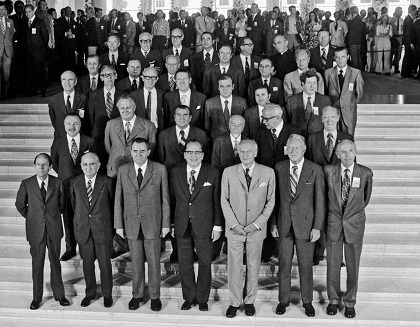
As subsequent CSCE conferences showed, Soviet officials had totally underestimated the effect of the provisions for the exchange of information, which allowed for the unscrambled reception of Western media broadcasts within the geographic area of the Warsaw Pact countries. East Germans benefited especially from access to West German radio and television programs, which furnished previously unobtainable news about world events. Television viewers in the East also became aware of an obviously far superior standard of living in the West and developed a new awareness of the deficiencies of the communist regime, an awareness that fifteen years later led to the events that brought down that regime.
Related articles:
The Honecker Era, 1971-89
The New East German Constitution and the Question of Identity
Relations Between the Two Germanys
The Peace Movement and Internal Resistance in GDR
The Last Days of East Germany
